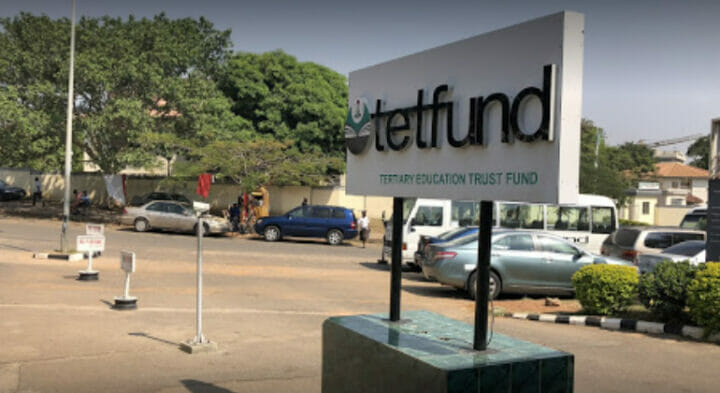- Fund allocation was barely enough to service programmes under its Tertiary Scholarship for Academic Staff
- Okebukola said local universities should be provided with state-of-the-art facilities
The Tertiary Education Trust Fund (TETFund) has said that the recent Central Bank of Nigeria (CBN) policy has created difficulties in the payment of foreign scholarship tuition fees and stipends.
The Executive Secretary, TETFund, Mr. Sonny Echono, made this known at a One-Day stakeholder Engagement on Emerging Issues with the TETFund Intervention in Abuja on Wednesday.
Echono said since the fund allocation was barely enough to service programmes under its Tertiary Scholarship for Academic Staff (TSAS), the fund was considering suspending foreign scholarships while also considering an upward review of local scholarships.
”The fund at this material time is also discouraging beneficiary institutions from initiating new Benchwork programmes.
”Additionally, there are issues related to scholars not returning to serve their bonds at their home institutions upon completion of their programmes.
”In fact, the challenge of scholars absconding has undermined and complicated the TSAS programme, bringing it under intense scrutiny.
”It is for these and other reasons that this engagement was organised. We need to address these challenges and find solutions to ensure the effective and smooth implementation of our scholarship programmes,” he said.
The executive secretary noted that the fund recently signed several MoUs with some prestigious institutions overseas, including universities in Malaysia, India, Brazil, France, and the United States, with a view to boosting and enhancing the TSAS programme in the future.
Also speaking, the Acting Executive Secretary, National Universities Commission (NUC), Chris Maiyaki, called on the need to develop new strategies for funding while ensuring sensitivity to the evolving and challenging dynamics through qualitative funding.
Maiyaki advised the fund to revamp its monitoring mechanism for quality assurance so as to have a better return on investment in its projects.
Meanwhile, the Chairman of the House Committee on TETFund, Mrs Miriam Onuoha, said in making essential infrastructure available in tertiary institutions, there was a need to ensure inclusivity, especially for persons living with disabilities (PLWD).
“In our physical planning, we must make the building accessible to be accommodating to the needs of PLWD,” she said.
In the same vein, the former Executive Secretary of NUC, Prof. Peter Okebukola, called for a monitoring and implementation system to ensure that the academic calendars of universities were adhered to.
Okebukola, who spoke on TSAS, emerging issues, and possible solutions, clamours for reduced TETFund overseas scholarships while encouraging in-country training in TETFund-strengthened PG programmes.
He said that rather than continuously spending a lot of funds on foreign training, local universities should be provided with state-of-the-art facilities while carrying out the accreditation of postgraduate programmes.
”In offering solutions to these challenges, there is a need to offer TETFund support to top-rate lecturers from overseas universities to come to Nigeria to join local PG training by Nigerian professors.
”We must send professors (of at least 10 years standing) for capacity building to top-rate overseas universities in carefully selected programmes on return to bolster doctoral education and supervision, he said.
